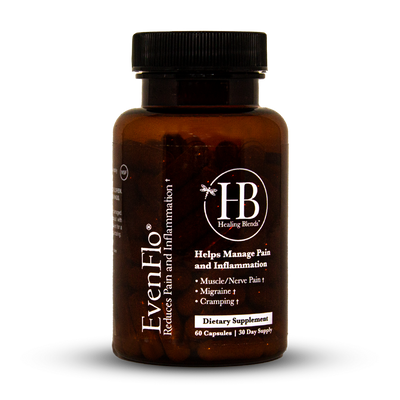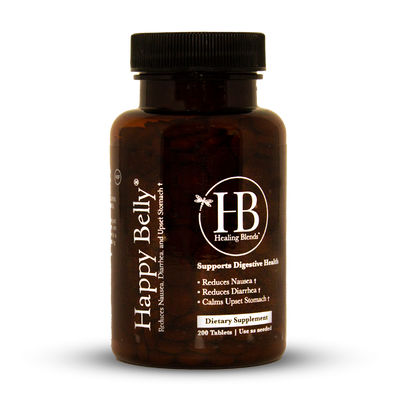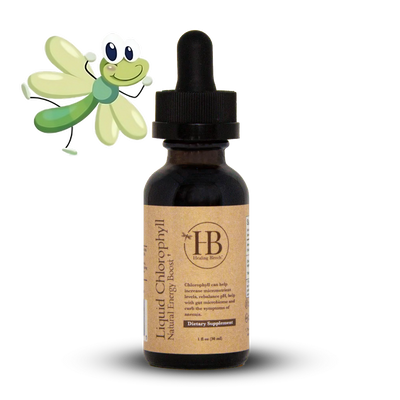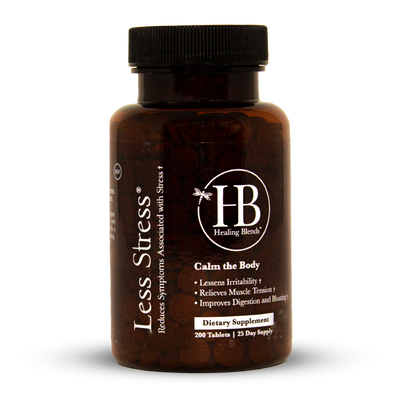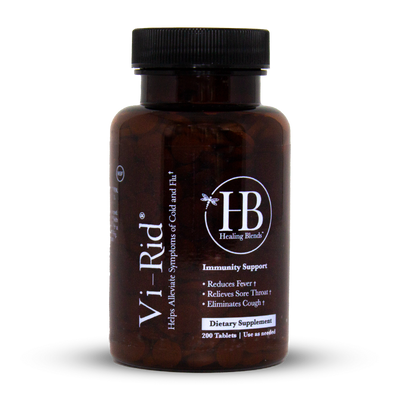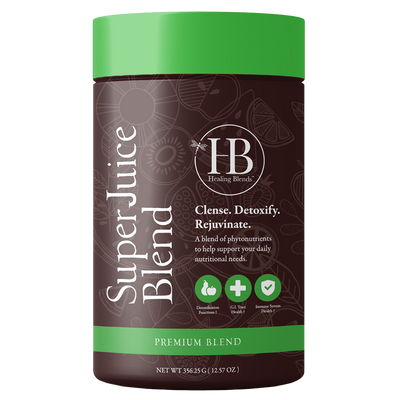Does Your Body Need a Detox? Identify the Signs and Address the Problem with Herbs!
Our bodies can naturally detox but overburdening our systems with toxins from our diet and environment brings that natural process to a halt. Every day, we breathe in toxins. Toxins penetrate our food. And can be found in the water we drink too.
So how can you tell when you’re over-toxed and in need of a detox? Recognizing the symptoms can help you address the problem and reboot your system! In this post, we’ll be looking at some of the most common signs that your body is in need of a detox and we’ll also be sharing some great herbal detox tips with you to help make your detox more effective.
Where Do the Toxins Come From?
The sad reality is that your body can store toxins for years without giving you any signs, and it’s only when toxin levels increase to the point where your body can’t keep up that you’ll start experiencing symptoms that signal the need for a detox. Toxins come from a variety of sources including environmental and emotional settings. Here’s a brief look at the root of toxic problems:
Environmental toxins - These toxins, as you might imagine, stem from radiation, pesticides, herbicides, cleaning products, water, and air pollution.
Lifestyle toxins – This refers to the toxins we ingest in the form of sugar, prescription drugs, processed foods, alcohol, caffeine, and tobacco.
Metabolic toxins – Metabolic toxins build up when our bodies start breaking down proteins, sugars, and fats, and if our diets don’t contain the right nutrients, this toxic waste builds up in the body.
Intestinal microbes – your gastrointestinal tract contains yeast and bacteria that aid the body’s digestion process. But when there’s excess growth of bacteria in the intestinal tract, the toxins can get into your bloodstream and cause a range of health problems.
Emotional toxins – Stress can affect your nervous and hormonal system, which can affect your body’s natural ability to detox!
7 Signs Your Body Needs a Detox:
#1 Your energy levels are depleted
If you feel tired and sluggish all the time, your body might be telling you that it’s time to hit the reset button. When we sleep, our bodies rest and digest, and that’s also when healing and regeneration occurs. When we’re overburdened with toxins, our bodies can’t properly flush out all the foreign substances. The long-term toxic load can lead to adrenal fatigue, which causes you to feel exhausted and sleepy, regardless of how many hours of sleep you’re getting each night.
#2 Aches and pains are nothing new to you
Toxins have the ability to disrupt your metabolism, and aside from making you feel sluggish, it can also lead to stiff joints and muscle pains. If you’re also constantly battling with inexplicable headaches, it might be an indication that your toxicity levels are higher than normal. Toxins, as mentioned before, can affect your brain, and they can also cause persistent headaches.
#3 Insomnia is an old friend of yours
If you feel like you’re constantly stressed out and just can’t fall asleep at night, there might be an imbalance in your cortisol levels. Your body releases this hormone (especially at night) to help relieve stress. In healthy individuals, cortisol levels are higher in the morning and gradually decrease throughout the day. But when there’s an imbalance of your cortisol levels, your cortisol levels are higher at night, leaving you feeling more energetic than in the morning. Insomnia, in the long run, can lead to a range of health problems like heart disease, so it’s important to detox if you feel like your cortisol levels might be to blame.
#4 Your mood isn’t what it’s supposed to be
A lot of chemicals can cause depression. Even alcohol, which most people presume cheers you up, can lower mood. There are so many toxic compounds that are known to cause neurotoxicity, and in some people, it also causes a depressed state of mind. If you’re experiencing mood swings throughout the day, it might also be a sign that things aren’t in balance on the inside. Toxins like xenoestrogens can cause hormonal imbalances that affect men and women. Xenoestrogen is a mix of synthetic hormones that are found in compounds like phthalates, BPA, and PCBs, toxins commonly found in plastics.
#5 You’ve noticed some unpleasant body odors
If you’re experiencing bad breath and offensive-smelling gas and stools, it might be an indication that your colon and liver are having a hard time getting rid of the toxic load inside your system. Feeling bloated and experiencing bad body odor are all signs that your body needs some help with flushing out the toxins. Constipation can also be caused by a lack of antioxidants in your diet, which leads to toxins being absorbed into your bloodstream and building up.
#6 Your skin is acting out
Your liver oversees getting rid of most of the toxins from your body, but when your body is overloaded with toxins, the liver can’t flush them out and will do so through the skin. When this happens, it can lead to acne eczema, dermatographia, and boils.
#7 You struggle with an impaired immune system
Your body needs vitamins, minerals, and amino acids to detoxify waste, but when your toxicity levels are too high, your body can’t absorb nutrients effectively, which leads to bad overall health. Your immune system plays a vital role in cleaning out toxins, so it’s easy for the immune system to become overburdened when there are too many chemicals in your system.
How to Naturally Detox Your Body: 7 Herbal Options for a Detox Plan
Modern society places a heavy toxic burden on the human body and the environment, which is why it’s important to take the time to detox to provide your body with some respite, cleansing of unwanted chemicals, and resetting the stage for health.
The good news is that there are a bunch of herbs that have healing properties, most of which are perfect for the purpose of detoxing! Even though some herbs like parsley and dandelion might be popular on the detox scene, here’s a look at some lesser-known herbs that have powerful detoxification and healing properties!
#1 Punarnava
Punarnava is also known as Red Spiderling, Spreading Hogweed, or Tarvine, and it’s a herb that’s widely used in Indian cuisine. Punarnava can help promote healthy inflammatory pathways and promotes lipid peroxidation. Aside from being an antioxidant, it can also support healthy inflammation and protect the body from oxidative stress.
#2 Tree Turmeric
Tree Turmeric (or Indian Barberry) has been used for more than 2500 years and is derived from the Himalayan region. The root bark of this herb has been proven to promote healthy microbial balance while other parts of the plant have been used in detox programs due to the Diterpenes, a phytoconstituent.
#3 Picrorhiza kurroa
Exported from the Nepalese Himalayas, picrorhiza kurroa is a perennial herb that’s used as a substitute from Indian dentian, a plant that’s detoxifying and protects against infectious diseases. Rich in phytochemicals and antioxidants, this herb is also anti-inflammatory and contains 22 active iridoid glycosides, which is why it has so many healing properties. This herb is best known for its ability to help protect the liver and respiratory system.
#4 Green Chiretta
Green Chiretta is a medicinal herb found in Southern and Southeast Asia. It contains rare phytochemical compounds like curyifloruside and noriridoids that are particularly beneficial to help detox the body. This herb is antimicrobial, anti-protozoan, anti-inflammatory, anti-infective, anti-angiogenic, and modulates liver enzymes.
#5 Heart-leaved Moonseed
Heart-leaved Moonseed is native to India, Myanmar, Sri Lanka, and Bangladesh. This climbing shrub contains compounds like alkaloids, steroids, diterpenoid lactones, and glycosides, which is why it has many healing properties. From supporting healthy inflammatory pathways to fostering microbial balance and promoting gastrointestinal health, the medicinal properties of Heart-leaved Moonseed are vast.
#6 Milk Thistle
Milk Thistle is a herb that’s used for its active compound, Silymarin, which makes it effective at detoxing the liver. This herb is also a potent antioxidant that can enhance protein synthesis and support healthy inflammatory pathways.
#7 False Daisy
False Daisy is also native to Bangladesh, like Heart-leaved Moonseed, but the local farmers consider it to be a weed rather than a medicinal plant. False Daisy contains healing phytoconstituents such as wedelolactone, oleanolic acid, luteolin, and apigenin, all of which can be used to support respiratory function, gastrointestinal function, hair growth, liver health, and skin health. This plant also has a range of medicinal uses including the ability to neutralize snake venom. Furthermore, it can be used as an antioxidant and to help support healthy inflammatory pathways.
Final Thoughts:
Our modern lifestyles place our bodies under severe stress and we’re exposing our bodies to environmental, metabolic, and emotional toxins on a daily basis. Even though our bodies have the ability to naturally detox, an overly toxic system often cries out for help (a proper detox) by giving us signs like low energy levels, insomnia, low mood, skin problems, and a weakened immune system.
A detox that eliminates processed foods and environmental toxins can effectively help reset the human body, setting you up for health success in the long run. The first step you need to take is to reduce your toxic load, and thanks to the help of herbs like False Daisy, Heart-leaved Moonseed, and Milk Thistle, you can supercharge your detox efforts in order to obtain the best possible outcome!
Resources:
- 40 compounds that can cause neurotoxicity
- Chemicals can cause sleep problems
- Negative effects of aspartame and MSG on brain health
- Headaches can be caused by toxins
- Hormonal imbalances caused by Xenoestrogen
- Toxic load can lead to constipation
- Punarnava health benefits
- Tree turmeric health benefits
- Health benefits of Picrorhiza kurroa
- Health benefits of False Daisy
















